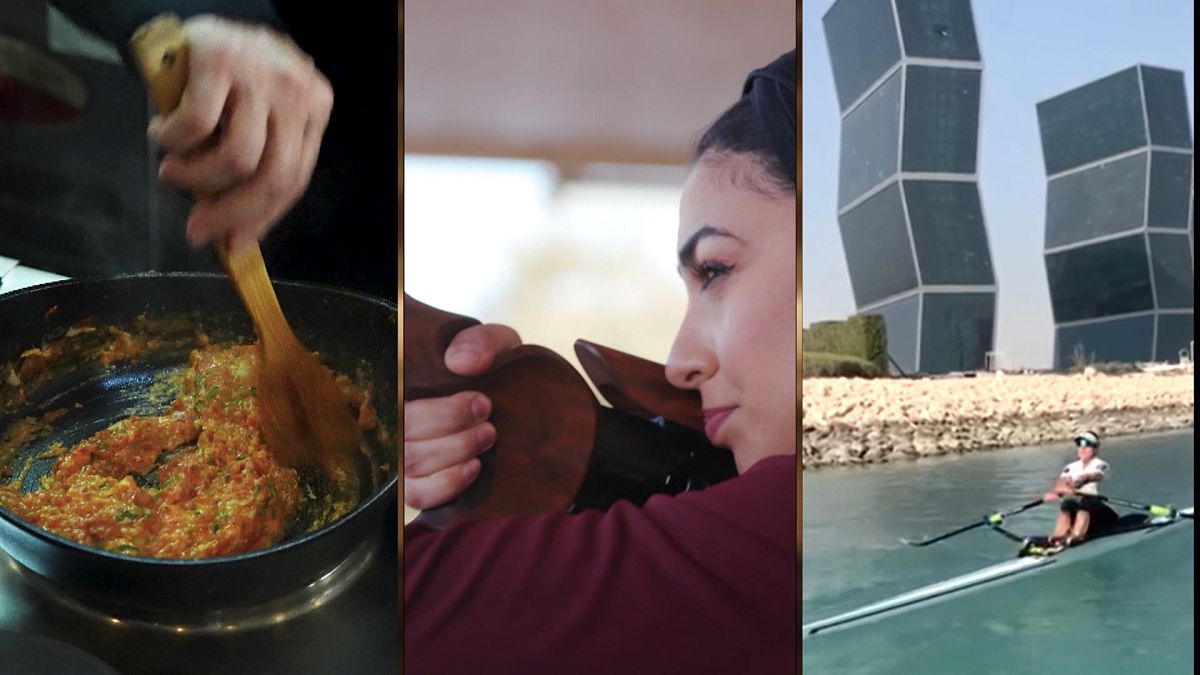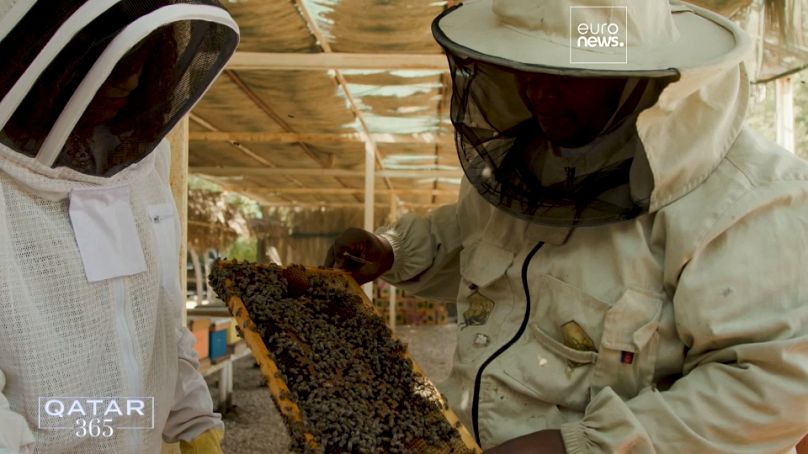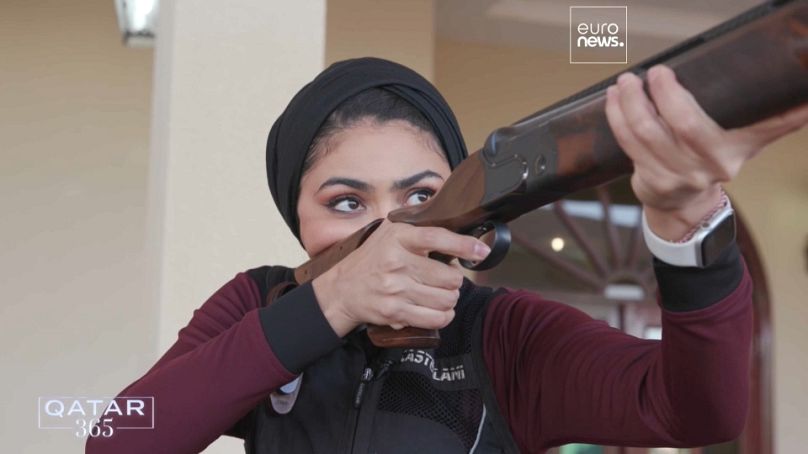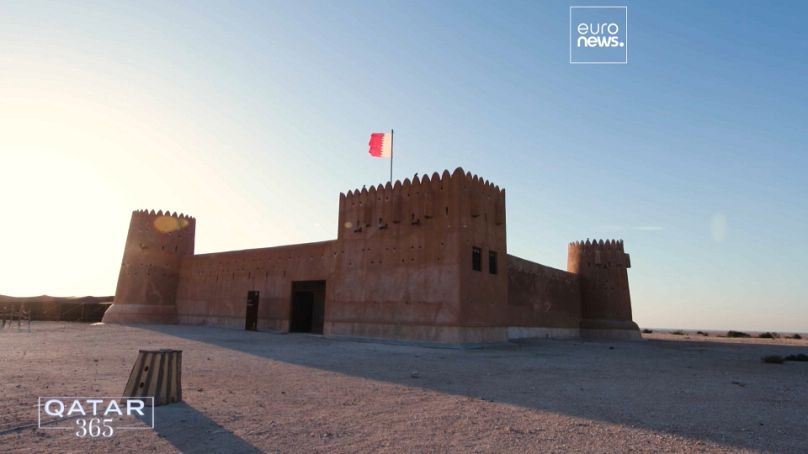Learn more about Qatar 365's favourite stories: From one of Qatar’s first beekeepers to the first woman to run a business in Doha’s Souq Waqif.
As 2022 comes to an end, we would like to bring you some of our favourite Qatar 365 stories of the year.
Qatar has ambitious food self-sufficiency targets for 2023, keeping in line with its 2030 national vision. Over the past 12 months, we found some farms helping the country reach its goal.
‘One of the first people to produce pollen in Qatar’
Umm Qarn farm has thousands of bees. Its beekeeper, Arafat Hussain, has been working with honey bees since he was a boy.
“I may be one of the first people to produce pollen in Qatar, royal jelly, propolis, and propolis products,” Hussain said.
“Bees teach you how to work, they teach you sacrifice and they teach you sincerity in work. Bees are beautiful insects, and my love for bees is great.”
Many farms in Qatar have recently ramped up their production of honey.
But with no real winter, eight months of summer and only four months of spring, Qatar has a relatively difficult climate for growing crops.
That is why some farms are using more unique methods to create a sustainable growing environment.
For example, a farm in Doha City Centre mall has implemented vertical farming with LED lighting. The technology is capable of growing herbs and fruits like melons and tomatoes.
Heenat Salma in the north-west of Doha is also trying to promote permaculture, growing self-sufficiently and sustainably.
“People harvest their own food. So, we are bringing more consciousness to our food growth. We connect with the elements and the beauty,” said Soumia Masmoudi, a permaculture designer.
Qatari women at the top of their fields
Nestled in the heart of Souq Waqif, one of Qatar’s traditional markets, is a busy local eatery run by Shams Al-Qassabi, a mother of five.
She is the first woman to run a business in the Souq. “For two months, no one knew about Shai Shamous,” Al-Qassabi said.
“I worked hard, day and night, I invented and enhanced some traditional Qatari recipes. I only use my ancestors’ recipes, and I only cook food that is connected to our heritage."
Reem Al-Sharshani started skeet shooting when she was just 15 years old. She is now in her 20s and a World Cup Bronze medallist.
“I want to be in the Olympics. To get the gold medal, to be very proud of myself for choosing this sport, and to make my family and country proud,” Al-Sharshani said.
Reem Al-Kuthairi is the first Qatari woman to pilot a microlight plane. “This year is my 10th year since I started flying… And actually, it was here in Qatar,” Al-Kuthairi said. “But then I decided to get an international license, and I travelled to the UK.
"I went with one of the best schools to get the license in four weeks. It was an intensive course, and it was really hard… but I enjoyed all the process.”
Tala Abujbara is the first Qatari woman to compete in rowing at the 2020 Olympics in Japan, placing high in the women’s single sculls.
“Find those people who support you and have your back, and hold on to them very tightly, because it’s a tough journey," she said.
"There are lots of ups and downs, and these are the people who will pick you up when you fall."
“If there is anyone who feels like they don't have that person in their lives just yet, you can think of me. I’m here, Tala, in a small corner of the world in Qatar... and I hope you can achieve whatever you set your mind to.”
Qatar’s role as a cultural hub
From the moment you arrive in Doha, there is a lot of art to be seen. Public art pieces in classic locations such as the National Museum bring the country’s history to life.
"I think art is a great way to encourage dialogue,” Sarah Foryame Lawler, head of Curatorial Planning and Public Art department at Qatar Museums, said.
“It's a great way to activate different parts of the city and areas that might not necessarily have art, where you bring that in and allow people to engage with that easily."
Something that was also a big part of everyday life in Qatar was the country’s famous pearling boats, known as dhows.
In fact, up until the 1940s, Qatar’s pearl trade accounted for a large share of the country’s economy, employing nearly 50% of its population. Today, many fishermen still practice long-established customs.
And while pearl diving is no longer a primary source of income, the ocean, fishing and the dhow boats still hold a special place in the culture of Qatar.
Al Zubarah is Qatar’s largest archaeological plot and the first Qatari site inscribed into the UNESCO World Heritage List. And it is also one of the best-preserved examples of a traditional pearl fishing town.
“Archaeology is the tool to understand people who used to live in Qatar, understand how they were living, what they were eating, why they were in this area and how they were connected to the Gulf and beyond it,” Dr Ferhan Serkal said.
Dr Serkal is one of the people mapping the location for new visitor trails.
The town had been the regional centre of the pearl trade. But it was ultimately abandoned in the 20th century before becoming a vital archaeological record of a lost era.






